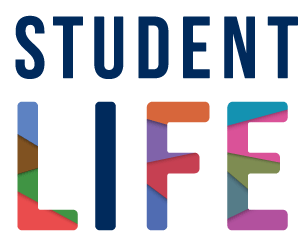Choose from a lineup of workshops led by an Accessibility Services Learning Strategist, and designed to empower you with practical tools and strategies for a successful learning experience.
Register for sessions through the Folio links within each workshop description.
All U of T students who self-identify as having a disability are eligible.
In this workshop, learn strategies that aim to enhance an open mind for tackling the mental processing and cognitive function required for university. You will also learn tips to improve mindfulness and resilience, while recognizing signs of stress and impaired concentration. Topics covered in this workshop include:
- Explore the science behind growth mindset and visualizing our brain’s plasticity.
- Learn about positive coping mechanisms to build mental strength.
- Discover multimodal learning strategies and how this can enhance your overall learning experience.
Spring & Summer 2025
How can you make the most of readings to supplement your learning? With limited time and so many obligations, taking the time to do readings for class can be overwhelming. In this workshop, an Accessibility Services Learning Strategist will cover strategies for effective reading. This session will cover topics such as:
- Strategies you can use before reading and during your reading.
- Note-taking tips.
- What you can do if you don’t have enough time to do all the readings or feel the need to do all the readings in depth.
Spring & Summer 2025
Are you interested in adding gamification to your current study toolbox? Games, badges and points can introduce motivation and consistency to learning in a new way. Whether you’ve always enjoyed trivia night, memory games or video games, learn some gamification methods to change up habits and add novelty to your study routine.
- Explore game elements suitable for online and in person courses.
- Learn about different habit trackers and game-based learning for increased motivation and engagement.
- Discover creative ways to personalize games for breaking down problem sets and essays.
Spring & Summer 2025
Learn memory-related strategies for tests and exams, including chunking, dual coding and the memory palace. You will also learn how you can integrate these strategies as part of your studying for upcoming assessments. Topics covered in this workshop include:
- Executive Functioning and Working Memory
- Memory Strategies
- Putting the Strategies into Practice
Spring & Summer 2025
In this workshop, learn strategies for tackling in-person tests and exams, including multiple choice, short answer, and essay exams. You will also learn how to create an inventory of material covered on your upcoming assessments. Topics covered in this workshop include:
- Identifying what to study, how to study, and when to study.
- Recognizing your strengths and discover how to use them to your advantage.
- Managing your time and staying calm and focused during your tests and assessments.
Spring & Summer 2025
Speaking in public can be a daunting experience for most of us. It’s completely natural to feel anxious at the thought of giving a seminar or presentation, even if you’re generally comfortable speaking in front of a group. The good news is that there are plenty of ways to enhance both the quality of your presentation skills and your overall confidence. You’ll gain a valuable toolbox filled with useful tips, techniques and strategies.
- Apply techniques to effectively manage presentation anxiety.
- Learn to develop interpersonal skills and increase confidence.
- Learn performance and communication strategies.
- Practice skills in an inclusive, safer space.
This workshop is for anyone who:
- Feels uncomfortable or avoids speaking in front of groups.
- Struggles with perfectionism or imposter syndrome.
- Wishes to strengthen their presentation skills and control their nervousness.
Each workshop is 90 minutes (50 minutes of learning strategy instruction, 10-minute break, optional 30-minute practice component) and available virtually and in person.
Spring & Summer 2025
Are you interested in learning about a variety of effective methods to take notes during class? In this 60-minute workshop, connect with an Accessibility Services Learning Strategist to learn new skills, ask questions and discuss your current strategies for note-taking. Discover active studying strategies that will help with taking notes during online and in-person classes.
- Learn strategies to take notes by hand or on your computer for online or in-person courses.
- Discover ways to incorporate active review into your weekly schedule.
- Discover strategies to get the most out of your courses, through annotating digital slides, taking digital notes, reviewing supplemental or copied notes.
Spring & Summer 2025
These online group sessions foster community while offering strategies and tips to help you navigate common challenge areas.
Eligibility
Any student who is currently registered with Accessibility Services.
Sessions
Each session is led by a learning strategist and limited to a maximum of six participants.
Topics
Perfectionism: Moving Towards Progress
Perfectionism can enter at life’s key moments. Understand the ‘why’ behind perfectionism, and how to manage challenges and perfectionistic tendencies. Practice reflection on current projects, the cultivation of self-awareness and learn strategies that can be applied to perceived challenges. Done is better than perfect!
Overcoming Procrastination and Building Motivation
Procrastination is often misinterpreted as a challenge in managing time, but it actually serves as a coping mechanism for dealing with difficult emotions and negative moods. It is common for us to prioritize immediate needs over long-term ones. Learn strategies to build momentum and motivation through self-encouragement, goal setting and task initiation.
Realistic Time Management
Are you experiencing challenges with creating a time management system that is tailored to your needs? Connect with peers and learn practical strategies to identify what is realistic, establish a routine and navigate situations when things don’t go as planned.
Spring & Summer 2025 Schedule
May
- Friday, May 9 at 11 a.m. Realistic Time Management
- Wednesday, May 14 at 2 p.m. Perfectionism: Moving Towards Progress
- Friday, May 23 at 11 a.m. Overcoming Procrastination and Building Motivation
- Wednesday, May 28 at 2 p.m. Realistic Time Management
June
- Friday, June 6 at 11 a.m. Perfectionism: Moving Towards Progress
- Wednesday, June 11 at 2 p.m. Overcoming Procrastination and Building Motivation
- Friday, June 20 at 11 a.m. Realistic Time Management
July
- Friday, July 11 at 11 a.m. Overcoming Procrastination and Building Motivation
- Wednesday, July 23 at 2 p.m. Realistic Time Management
August
- Friday, August 8 at 11 a.m. Perfectionism: Moving Towards Progress
- Friday, August 22 at 11 a.m. Realistic Time Management
- Wednesday, August 27 at 2 p.m. Perfectionism: Moving Towards Progress
Registration
Register in advance on Folio to secure your spot:
- Perfectionism: Moving Towards Progress
- Overcoming Procrastination and Building Motivation
- Realistic Time Management
Registration is required to receive the link to join. You will receive a confirmation email and a Microsoft Teams invite the day before the session.
Email us at as.learning@utoronto.ca if you need to cancel.
Virtual Accountability Check-ins offer the opportunity to connect with Accessibility Services staff and your peers two times a week. These check-ins help you stay on track, increase accountability and allow you to celebrate your weekly successes!
Eligibility
All U of T students who are registered with Accessibility Services.
Schedule
Join us on Mondays from 12 – 12:30 p.m. to set goals and create a weekly schedule and on Fridays from 12 – 12:30 p.m. to reflect on the week and celebrate successes.
Check-ins Format
On Mondays, join a learning strategist and peer facilitator to review your week ahead. Come back on Fridays to review how your week went and what you achieved. Each check-in will include a learning strategy and helpful tips to make the most of your productivity.
Registration
Registration is required to receive the link to join.
Go to Folio to sign up for a session that works for you.
Spring & Summer 2025
- Monday, May 5
- Friday, May 9
- Monday, May 12
- Friday, May 23
- Monday, May 26
- Friday, May 30
- Monday, June 2
- Friday, June 6
- Monday, June 9
- Friday, June 13
- Monday, June 16
- Friday, June 20
- Monday, June 23
- Friday, July 4
- Monday, July 7
- Friday, July 11
- Monday, July 14
- Friday, July 18
- Monday, July 21
- Friday, July 25
- Monday, July 28
- Friday, August 8
Workshops Format
Each learning skills workshop is led by a learning strategist. Students will learn different learning strategies about a specific academic skill (e.g. time-management). You will also have opportunities to ask questions about learning strategies and listen in on discussions.
Participation
In online workshops, being on camera, using your mic, or participating in the chat are all optional. We welcome you to participate in a way that works for you. You are welcome to ask your own questions or simply observe these sessions to learn from ongoing discussions.
Materials
You are not required to bring any materials to these sessions, but we encourage you to come prepared with questions. Recordings of these sessions will not be provided to encourage the participation of all student attendees.
Platform access information
Online sessions will be delivered using MS Teams. Information on how to access live captions, and all other accessibility information for MS Teams, can be found on this MS Teams accessibility page.
Questions
If you have any questions, please feel free to contact us at as.learning@utoronto.ca.





